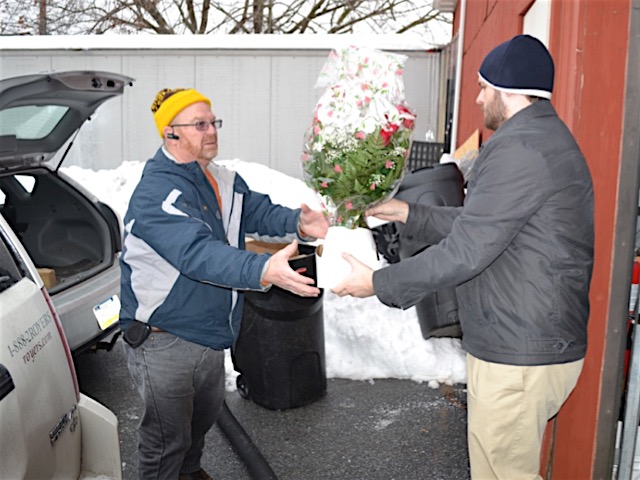Day 3 found Tom Royer and Geoff Royer again in Bogota, again inspecting Valentine’s Day roses, this time at the Multiflora farm.
“The quality was very good from what we saw,” Geoff said. “It’s impossible to look at every bunch we get, but we make sure we go through the process with them about the cut point, again.”
As noted in our Day 2 entry, cut point is crucial. It’s the stage in a flower’s life when it is cut from the plant. The cut point has to be just right to ensure that our customers get the best quality and most value from their flowers.
Multiflora has invested in its processes to make them more accurate and efficient. Workers used to grade flowers in the field, so it was not as accurate as it could be, Geoff said.
Now the only thing they do in the field is sort the roses, long-stem vs. short stem. Now there’s a post-harvest building where the roses are graded more accurately, prepped and packed in boxes for shipping to customers such as Royer’s.
Multiflora now cools its loading dock, so there is no break in the “cold chain” between the post-harvest building, the loading dock, and the refrigerated trucks that will transport the roses to the airport.
“The better that flowers can be kept cold, the longer they will last throughout the process and for our customers,” Geoff said.
Multiflora is switching to a hydroponic growing system, so the plants are growing in raised beds rather than directly in the ground. This gives the farm more control over the nutrients the plants receive — and increases the yield by 50 percent.
Headed for home
Tom and Geoff also visited the Hossa farm, which provides us with spray roses (multiple small blooms per stem). But the focus of this stop was Hossa’s lilies.
Hossa has developed new varieties that produce more blooms per stem. And like Multiflora, Hossa has improved its processes, namely packing.
“They tightened the lilies into the boxes better so during transport they don’t shift,” Geoff said. “If the lilies shift in the boxes, it damages the buds and leaves bruising and creasing once the flowers open up.”
Their farm tours completed, Tom and Geoff are going their separate ways. Tom will fly to Miami for another inspection of the Valentine’s Day shipments, ensuring the highest quality before the flowers are packed on our truck for delivery to our Lebanon distribution center.
Geoff is headed back to Pennsylvania, arriving in Lebanon in time for the start of Valentine’s Day production Saturday in our central design department.
There, teams of Royer’s employees will handcraft thousands of holiday arrangements using the roses, carnations and other Colombian-grown flowers that Geoff and Tom saw firsthand only days earlier.



























